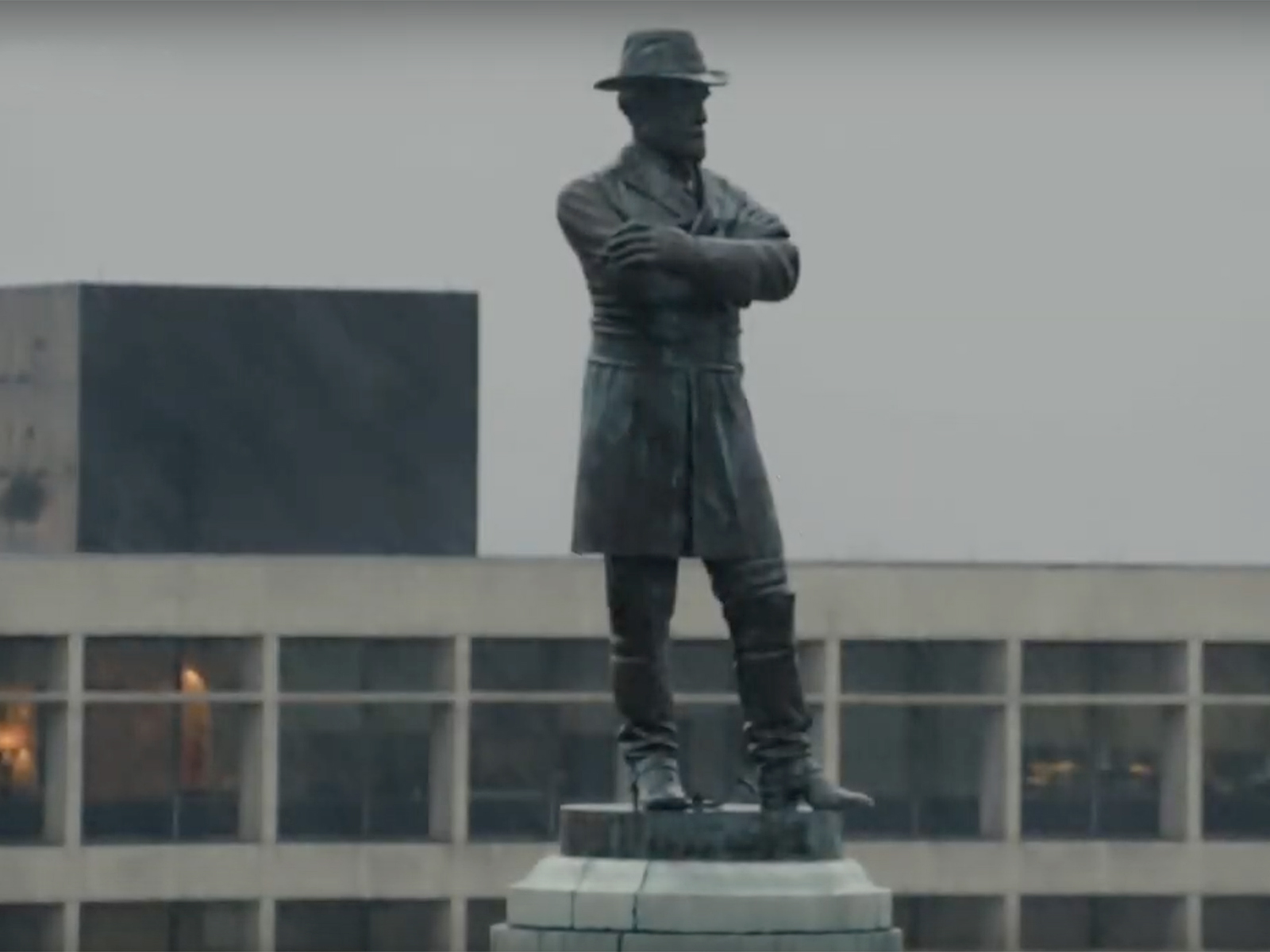
- Film
Docs: The Neutral Ground (2021)
A world premiere at the Tribeca Film Festival, where filmmaker CJ Hunt was feted with a Special Jury Mention for Best New Documentary Director, The Neutral Ground is a timely, remarkable, and engaging work of social inquisitiveness. The film is set for a limited theatrical run in advance of its national broadcast premiere across PBS stations, to be followed by a period of exclusive streaming. Examining the controversy surrounding the removal of Confederate monuments, the losing side in the American Civil War, Hunt’s movie illuminates the tangible connection between racist symbols and oppressive systems with both moral clarity and deep feeling, all while never losing its sense of humor.
The Neutral Ground takes its title from the strip of grassy land between opposing city streets, meant to be a community gathering spot welcome to all. It is these very public spaces, however, in which a statue of Robert E. Lee and so many of New Orleans’ other Confederate monuments exist, creating no small amount of cognitive dissonance in a metropolis that is more than 60 percent African-American. Hunt, who spent almost a decade living in the celebrated Louisiana city, opens and sets the bulk of his movie there, chronicling how Mayor Mitch Landrieu and the city council spend 2015 and 2016 locked in a legal and cultural conflict that would spread across the United States, serving as a proxy battle for a wider racial reckoning long unpursued.
A twinge of slight trepidation ripples forth early on when Hunt describes his movie’s “YouTube video roots,” and it becomes clear that he will be a central and guiding figure in the film. Over the last decade too many documentary filmmakers, particularly those working in the sociopolitical realm, have cast themselves as subject-hosts in their movies, disproportionately foregrounding their struggles and snark, and in the process often undermining their purported topics of inquiry.
But Hunt is the real deal, and his easygoing persona and estimable talents give The Neutral Ground the sensation of a smartly fleshed out segment from The Daily Show – which turns out to make great sense since Hunt daylights as a field producer for that very show’s current incarnation, hosted by Trevor Noah. Hunt’s film, like the best types of nonfiction cinema, contains multitudes, and he strikes a smart balance throughout between the political and personal, the challenging and droll.
From frame one, The Neutral Ground acknowledges the thorny complications of its subject, describing history as “an attic of racial horrors most of us would rather not go into.” To better understand the perspective of those claiming that Confederate monuments are only about historical tribute and not White supremacy (something at least one of New Orleans’ statues explicitly contradicts) Hunt meets with Thomas Taylor, an affable emissary of the Sons of Confederate Veterans, and later embeds in a Civil War reenactment ceremony, where he good-naturedly debates some of its participants.
These entertaining segments form one pillar of the movie, counterbalancing erudite sit-down interviews with subjects like Christy Coleman, former CEO of the American Civil War Museum. Hunt also does a superb job of elucidating the negationist ideology of the “Lost Cause,” and Northern complicity in eventually romanticizing the South – showing how placating its lies about the horrors of slavery and the true motivations behind secession, would assist in paving the way for the Jim Crow Era. It’s an ethical lesson pregnant with unsettling parallels to the climate of denialism which grips the present-day American political landscape.
Significantly, The Neutral Ground also doesn’t shortchange Hunt’s own complex feelings or biography (Hunt is biracial), and what he later comes to self-diagnose as his latent anger. Late in the movie, Hunt travels with a photographer friend to Charlottesville, Virginia, in advance of the August 2017 “Unite the Right” rally, where he grapples with performative White supremacy when he comes across a young man who describes his participation in the march as mere “fun.” After the event takes a tragic turn, and counter-protester Heather Heyer is killed by a White supremacist who rams his car into a group of people, a grievously shaken Hunt struggles with the shortcomings of his comedically-inclined toolkit when confronted with this more monstrous and active form of bigotry.
Comedy can, among those inclined to listen to the better angels of their nature, evoke reflection in a way that a more straightforward packaging sometimes does not. And that’s what The Neutral Ground does. A well-crafted movie that juggles shrewdly curated factual assertions with thought-provoking observations and queries from a smart, disarming guide, it’s an involving film that asks a viewer to sit with some uncomfortable truths. What they subsequently choose to do with those feelings is up to them.

